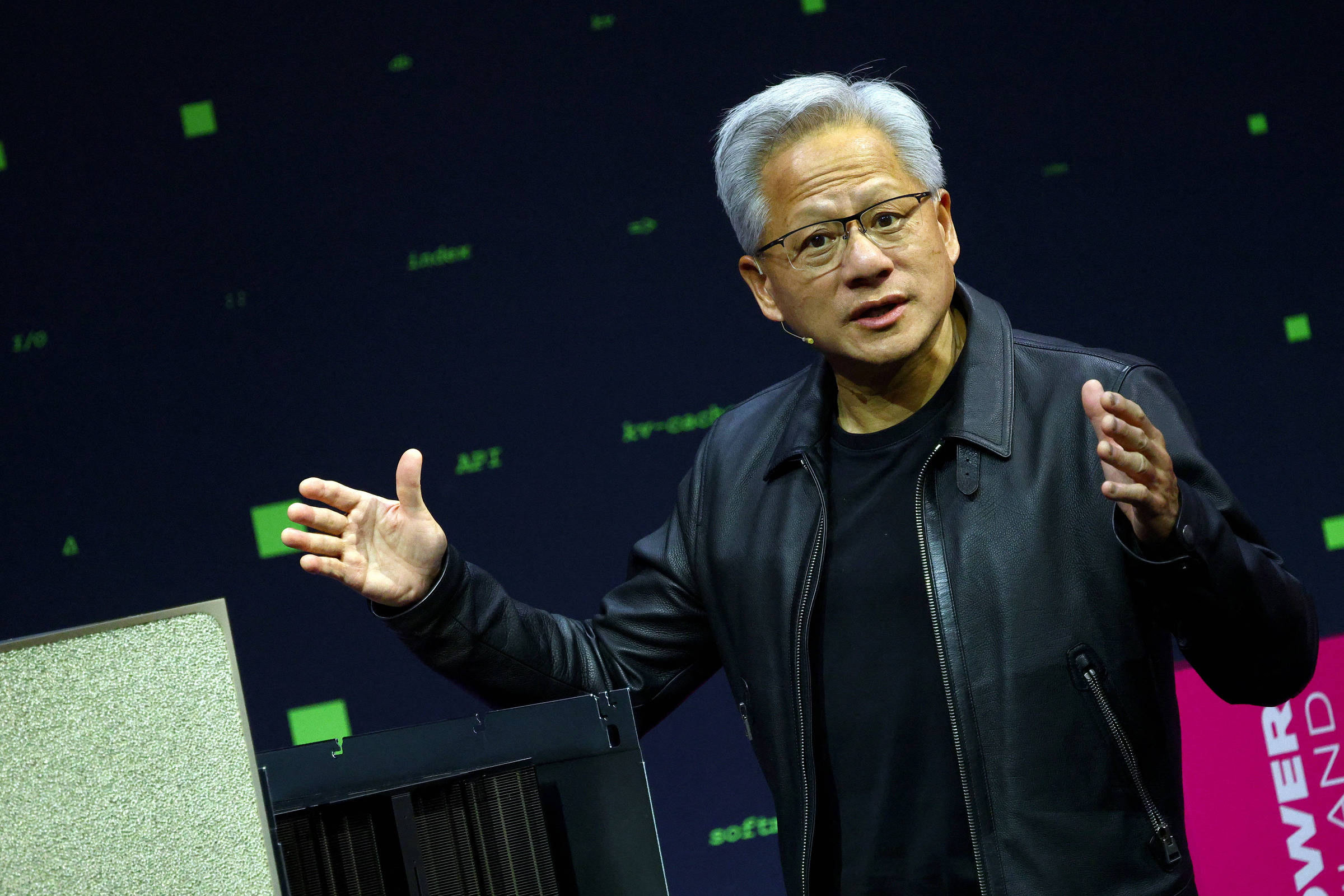
Nvidia CEO Jensen Huang predicts China will win the AI race against the US
Nvidia CEO Jensen Huang said Wednesday that China will surpass the US in the AI race due to lower energy costs and softer regulations.
November 5, 2025 - 07:56 PM ET • 2 min read
Jensen Huang, the CEO of Nvidia, stated on Wednesday that China is positioned to overcome the United States in the global competition for artificial intelligence dominance. Huang, who leads the world's most valuable company, attributed China's expected success primarily to its advantages in lower energy costs and a less restrictive regulatory framework.
Speaking on the sidelines of the Future of AI Summit, an event organized by the Financial Times, Huang delivered his most forceful public prediction on the matter, asserting plainly: "China will win the AI race."
Huang's remarks come as the U.S. government maintains strict export controls designed to curb China's access to advanced computing power necessary for developing sophisticated AI models. The Trump administration recently reaffirmed a prohibition that prevents California-based Nvidia from selling its most advanced chips to Beijing. This decision was maintained following a meeting between President Donald Trump and Chinese leader Xi Jinping last week.
The CEO's assessment highlights the challenges facing U.S. technology firms navigating geopolitical tensions while seeking access to the massive Chinese market. Huang suggested that the combination of cheaper energy (a crucial input for training large language models) and a streamlined regulatory environment provides China with a significant competitive edge.
Beyond the geopolitical rivalry, Huang also criticized the domestic regulatory landscape in the West. He argued that Western nations, including the U.S. and the U.K., are being hindered by "cinicism," and called for "more optimism" regarding technological development.
He specifically pointed to the risk of fragmented governance within the United States, criticizing new state-level rules concerning AI. Huang warned that this patchwork approach could result in "50 different rules" across the country, potentially stifling innovation and slowing the pace of U.S. AI development relative to China.